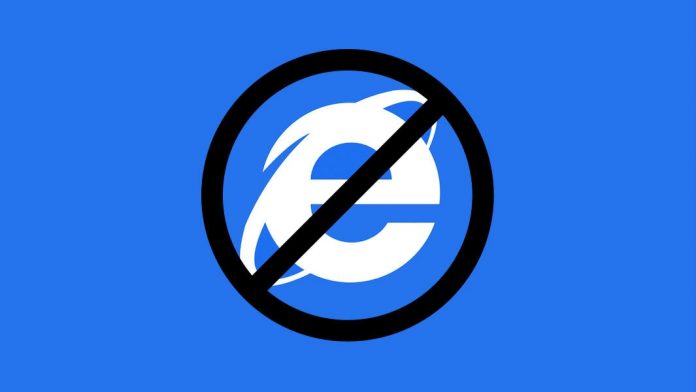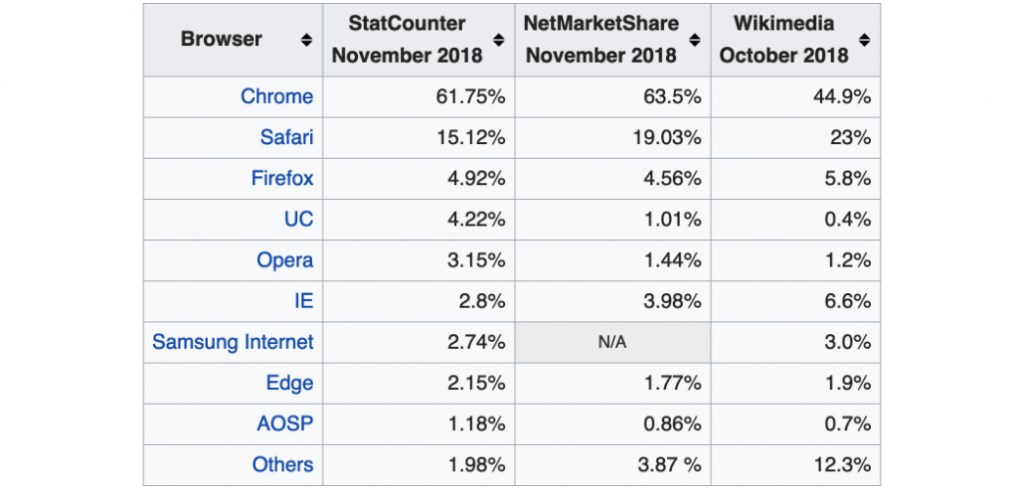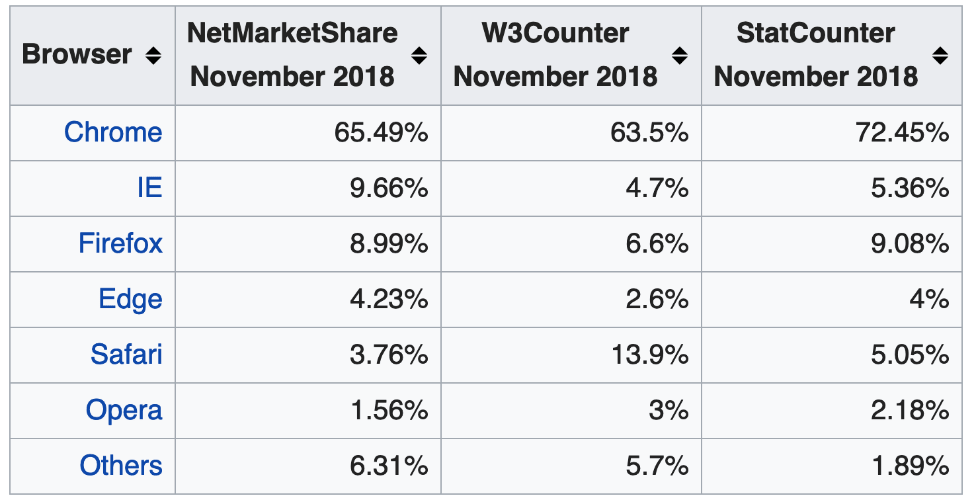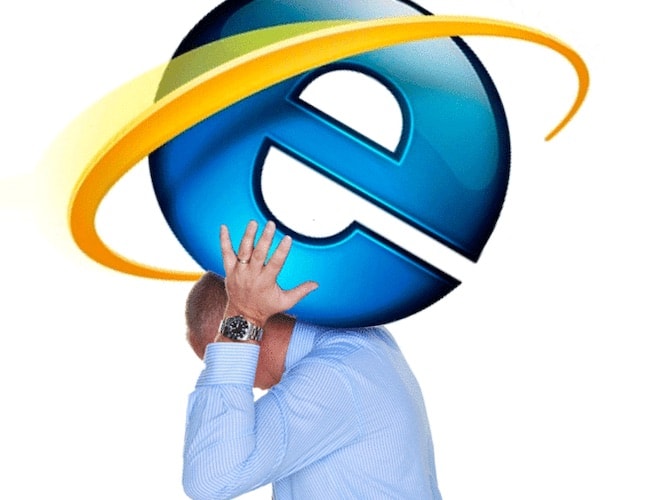
Microsoft Windows is undoubtedly the most popular and widely used operating system, but not all applications that come by default with the Windows operating system are useful, and one of them is Internet Explorer.
It won’t be surprising if a Windows user said that they never used the Internet Explorer or maybe just to download the Chrome or other browsers. However, it wasn’t always like this. There was a time when Internet Explorer used to have the largest number of users globally but then other browsers like Opera, Safari, Firefox, and Chrome came into light and started stealing the userbase from Internet Explorer.
Based on the usage share of all browsers until November 2018, Chrome is the most used internet browser with the user share of 61.75%, Apple’s Safari is on 2nd position with 15.12% and there are still 2.8% users who use the Internet Explorer.

If you look at the data specifically for the usage share of desktop browsers, the Internet Explorer is still at 2nd position with 9.66% of the users which is more than the twice usage share of new Microsoft browser called Microsoft Edge Edge and that’s the big problem for Microsoft.

Microsoft has stopped supporting the Internet Explorer browser since long back, soon after the launch of Microsoft Edge but there are many users who are still using the Internet Explorer. Internet Explorer is not secure anymore since the company has stopped the software updates and upgrades for browser and declared it dead long back.
Chris Jackson, Senior Cybersecurity Architect at Microsoft has written a long blog asking Internet Explorer users to finally let go of their old ways and to embrace a modern browser.
Here is the excerpt from Chris Jackson’s blog post,
“Why shouldn’t I just keep doing what I have been doing?
So, why was it so important that we invert our approach to legacy? Because if we didn’t, you would end up in a predicament—and probably sooner than you think.
You see, Internet Explorer is a compatibility solution. We’re not supporting new web standards for it and, while many sites work fine, developers by and large just aren’t testing for Internet Explorer these days. They’re testing on modern browsers. So, if we continued our previous approach, you would end up in a scenario where, by optimizing for the things you have, you end up not being able to use new apps as they come out. As new apps are coming out with greater frequency, what we want to help you do is avoid having to miss out on a progressively larger portion of the web!”

If you are still using the internet explorer for your personal or business work then you should read the full blog post the Senior Cybersecurity Architect of Microsoft yourself.
In India, some banks, telecom and other public and private agencies are still using the old and vulnerable Internet Explorer as their default browser. Not just that, some of the applications which these agencies are using were designed and developed to run on the Internet Explorer; so not just the browser but they also need to upgrade their application to minimize the possibilities of a security breach.

There are browsers like Google Chrome, Safari, Firefox, and Microsoft Edge which are really resourceful and capable of doing all the jobs with a way better safety and security, so you and your organisation should stop using the old vulnerable Internet Explorer and embrace a modern browser.





























